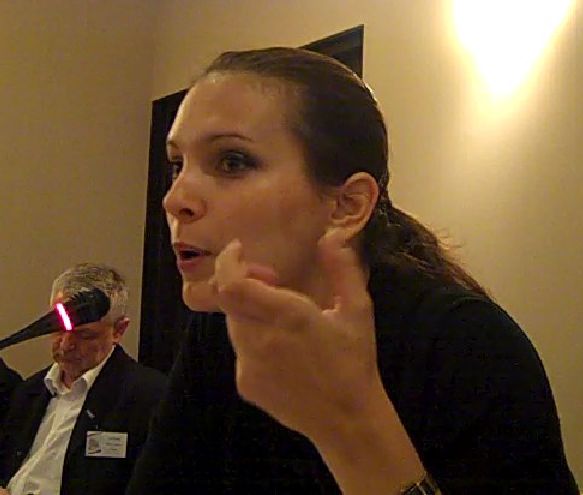
This was just one of many insightful presentations at the ‘Media for Diversity in New EU Countries’ Conference, held in Bucharest on 28-30 May 2010. Leslie Hawke, co-founder of Asociatia Ovidiu Rom, an NGO working to improve the situation of Roma children in Romania, and mother of the actor Ethan Hawke, gave a keynote speech detailing a World Bank Report stating that if the Roma community were not included more in society in new EU countries, particularly in relation to education, then it would have a significant detrimental impact on the economies of those countries.
Other insights included a presentation by Nick Carter, from the Society of Editors in the UK, detailing how media organisations can broaden their audience and thereby improve their profit, by being more inclusive. Milica Pesic, the Executive Director of the Media Diversity Institute stated, “We believe that this work will help all of us to understand how good media practice can help tackle the challenge of diversity – one of the most important treasures of our democratic societies.”

Participants at the conference included representatives from Bulgarian National Radio, the Estonian Public Broadcasting Company, Hungarian TV, TVN and the Gazeta Wyborcza newspaper from Poland, Romanian National Public Television, and Slovak Radio, in addition to NGOs representing Roma, LGBT issues, and disabled people among others. In total, media and non-governmental organisations from 10 new EU countries (Bulgaria, Czech Republic, Estonia, Hungary, Latvia, Lithuania, Poland, Romania, Slovakia, and Slovenia) were represented at the conference, together with representatives from the UK, France, the European Commission, the EU Fundamental Rights Agency, and the Council of Europe’s Anti-Discrimination Campaign.

The conference was a follow up to the European Commission Study on Media & Diversity, which identified initiatives by, or about, the media that countered discrimination and addressed diversity in a responsible way, throughout 30 European countries. The study produced recommendations for policy makers, the media industry and civil society organizations on the EU and national level, which formed the basis for discussions at the conference.
The conference was organized by the Media Diversity Institute in the UK, and the Centre for Independent Journalism in Romania, and was supported by the European Commission, the EU Fundamental Rights Agency, the Council of Europe’s Anti-Discrimination Campaign and the Romanian Government.
For further information on the conference please contact Farid Littleproud at the Media Diversity Institute (farid.littleproud@media-diversity.org)
